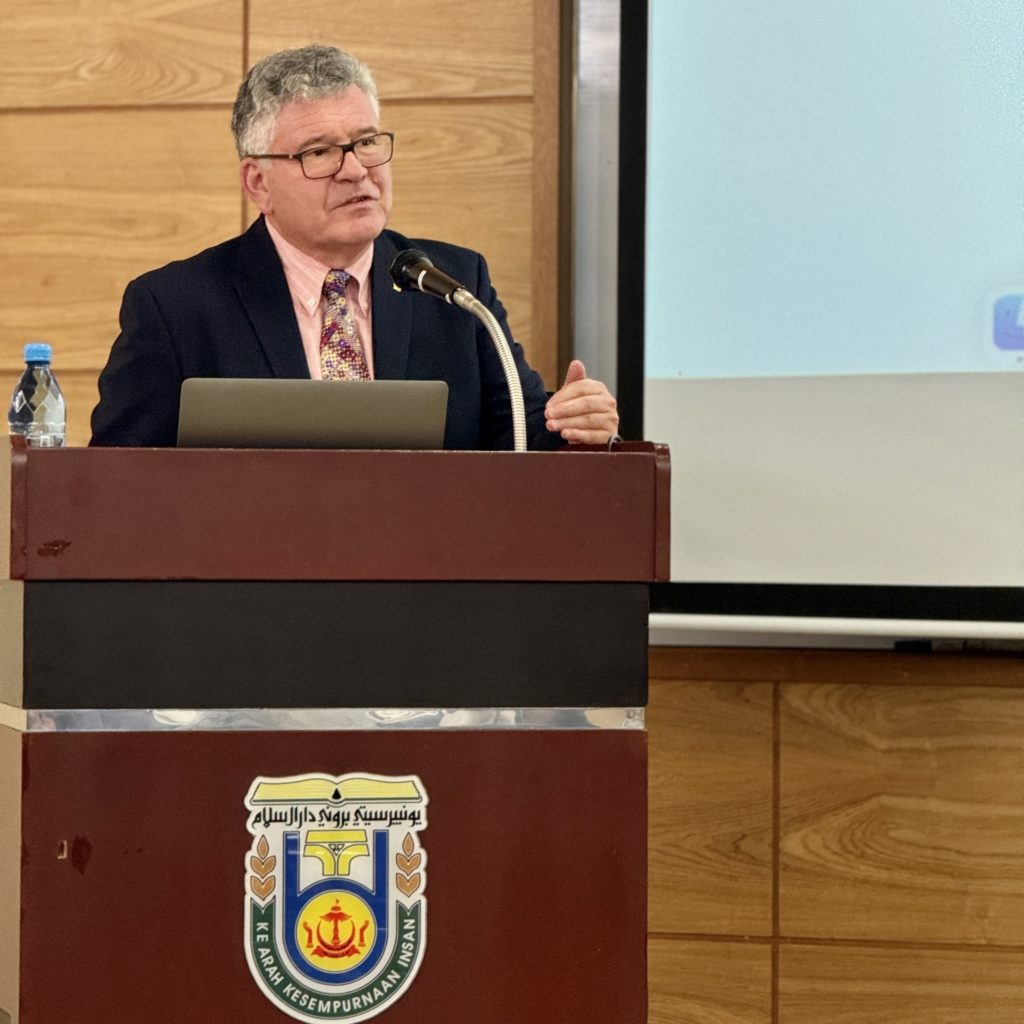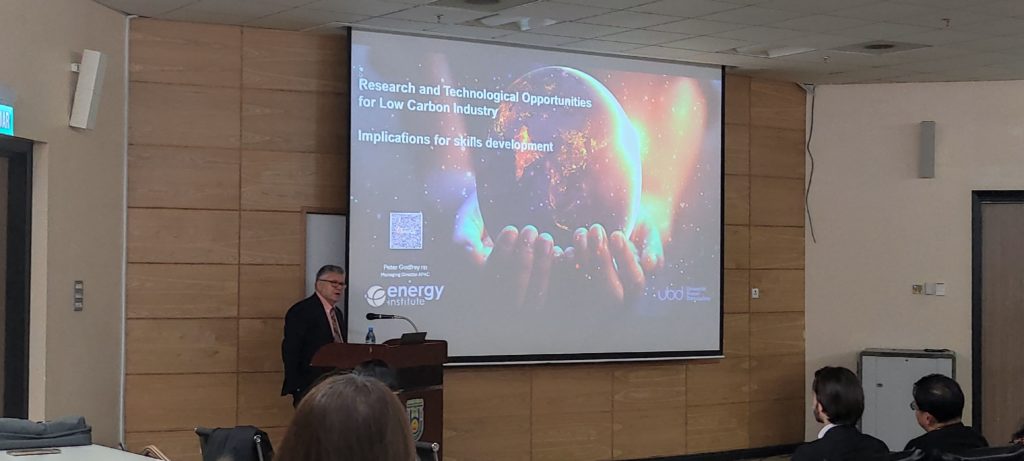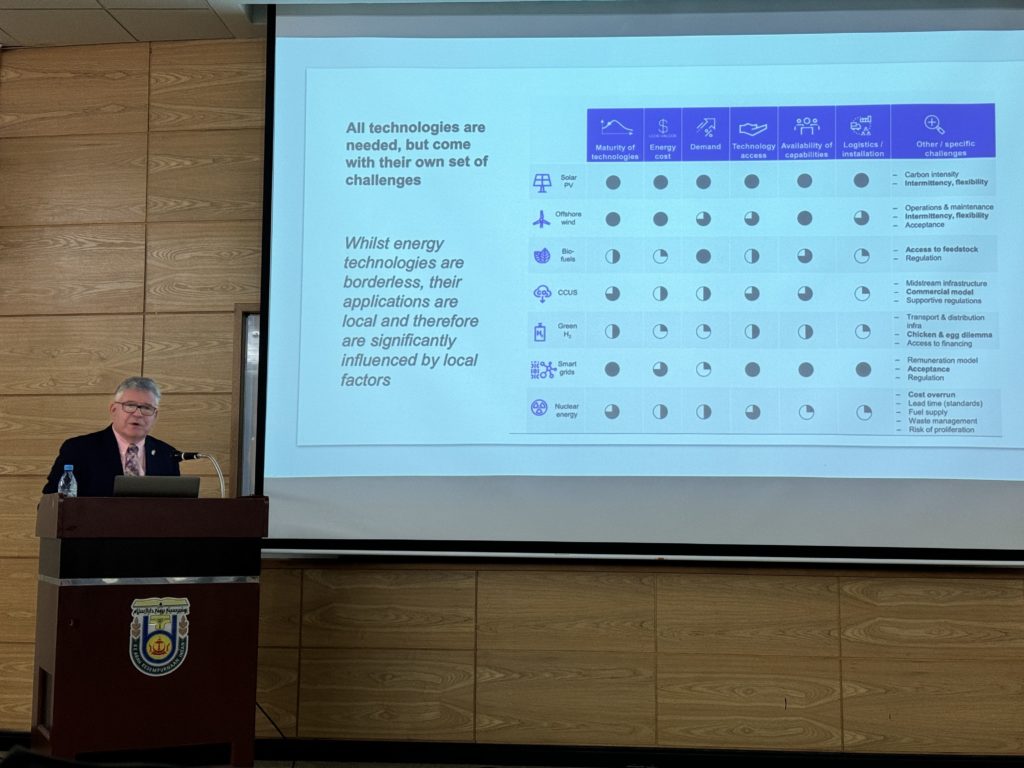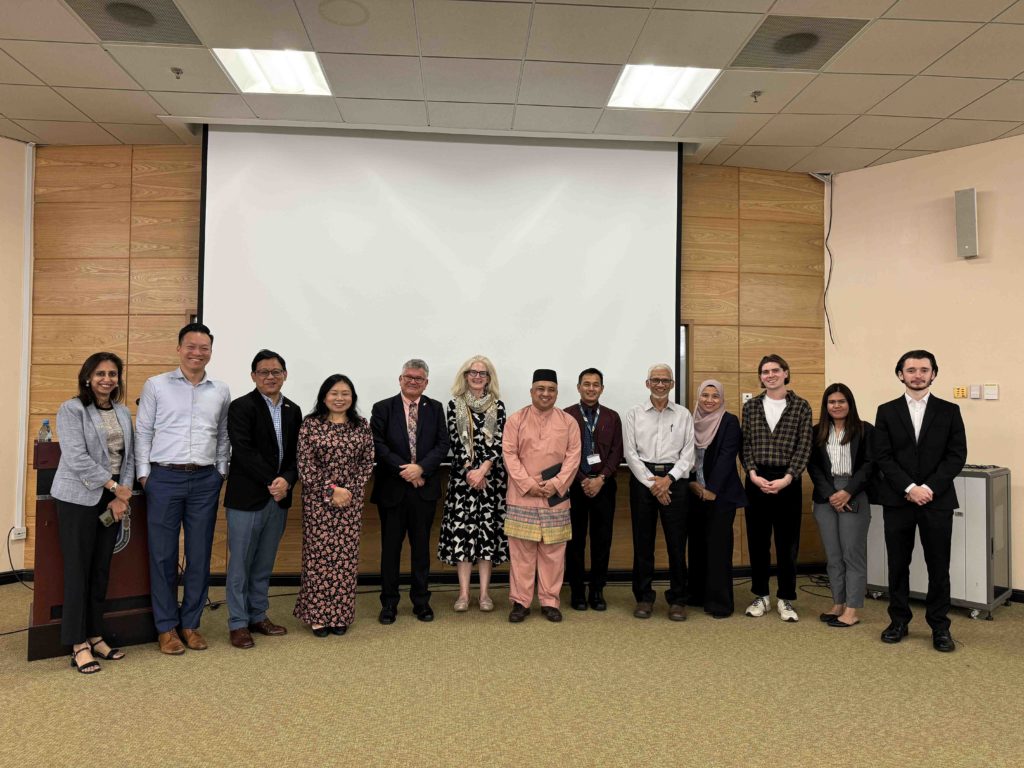Public Lecture on Pioneering the clean energy transition

The public lecture titled ‘Pioneering the Clean Energy Transition: Empowering Skills for Sustainable Industry Evolution’ was held on 17 April 2024 at IHS Lecture Theatre 2 (IHS Extension Building), PAPRSB Institute of Health Sciences, Universiti Brunei Darussalam. The lecture was led by Peter Godfrey, Managing Director of the Asia Pacific Energy Institute. Based in Singapore, Peter serves as the chief representative of the Energy Institute (EI) in the Asia Pacific region. The UK-headquartered EI’s membership increasingly reflects the growing spectrum of energy professionals throughout the sector with an ever-increasing focus on navigating the energy transition. Despite his extensive career in the oil and gas sector, notably with BP in upstream oil and gas and in energy finance, Peter has emerged as a vocal proponent for steering the energy sector towards a cleaner and more sustainable future. Also actively engaged in business development initiatives, Peter is dedicated to expediting the advancement of engineered carbon sequestration solutions, with a specific focus on Carbon Capture and Storage (CCS). His efforts extend to fostering the growth of low-carbon industrial clusters

The lecture delved deep into Brunei’s economic landscape, emphasizing the nation’s reliance on hydrocarbons and the imperative for economic diversification to reduce vulnerability to economic volatility. The government prioritizes economic diversification to promote sustainable development, but sustained investment and policy reforms are needed for a robust economy. Across Asia, balancing energy security with environmental sustainability is crucial amid the climate crisis. The region’s reliance on hydrocarbons necessitates a transition to cleaner energy.
Discussions ranged from sustainable development to the ‘5 D’s’ framework for energy transition, highlighting the pivotal role of engineering in shaping a greener, more resilient future. Bridging skill gaps and fostering interdisciplinary learning are essential for a seamless energy transition. Collaboration among governments, industries, and educational institutions is key to designing comprehensive training programs and driving sustainable innovation. Engineering plays a pivotal role in this transition, focusing on sustainability and redefining the future of industry.

The Q&A session at the end of the lecture explored key areas such as university research, commercialization, collaboration, and understanding the country’s energy dynamics. It was a profound exploration of critical topics shaping Brunei’s sustainable journey and global contributions.


